Shall We Wine is creating a space for wine enthusiasts, professionals and newbies other voices to share their wine stories. As part of our ‘Women in Wine’ focus, we introduce you to Elvira Fonz Gutiérrez, who shares part of her wine story in her own words.

Photo credit: Ariana Grande Amazon Music
March marks a tranquil phase in the wine industry, spanning from the vineyard to the market. This is also true for Central California Lodi’s wine country, from where I write these lines.
The vines, after a long hot hangtime over the summer focused on yielding the best fruit, now stand bare. After the winter —that hasn’t been too harsh in the Central Valley — the fields are beginning to turn green. Days are getting longer; the sun is stubborn and shines a little longer, refusing to make a place for the moon. I don’t see frozen windshields on my morning commutes, heralding the arrival of spring. Bud break in Lodi’s renowned vineyards serves as a sign of the season’s onset.
And we too wake from the winter slumber.
But us, women, never truly sleep. Not even the cold of winter intimidates us, accustomed as we are to adversity. It is fitting, then, that we harness those renewed energies to celebrate Women’s History Month: to emphasize the voice of our struggle.
Challenges in a Male-Dominated Industry
The wine industry, steeped in tradition and predominantly male, presents unique challenges to women. Marked by tradition in Europe and dominated by men on both sides of the Atlantic, from its inception, the term “wine” has been couched in masculine language – “wine” —”vino”— written in masculine form.
My first job in wine, as an export manager in France, taught me to assert my own voice. In the beginning, I felt intimidated as a young woman in an environment that very often made me feel alienated. I soon realized there was no such thing as impostor syndrome; others (men) would doubt my worth for me.
The winery that I represented was owned by José Luis, who accompanied me on the initial business visits. I would almost always be the only woman in the room. In the beginning, my voice faltered, revealing some insecurity. I would then, sometimes, end up giving the floor to José Luis, or step back into the role of his mere translator/interpreter.
Navigating Bias and Prejudice
With time, I persevered, lifted by my boss/ mentor José Luis, who recognized my potential. Let’s hear it for Allies! I finally gained confidence to thrive as a professional in the many meetings that followed. It was still not unusual, though, to find that, when arriving to an appointment with a “caviste” (wine shop owners in France), their first question was directed was whether “mon patron” (the French word for male boss —as opposed to “patronne”, its feminine form—) was on his way. I still had to deal with looks, comments, and mansplaining attitudes, but for those willing to dismantle their prejudices and take the time to listen to what this young girl had to say, a fruitful business relationship usually emerged. Many times, they complimented my French, my professionalism, my sales pitch, and the wine…
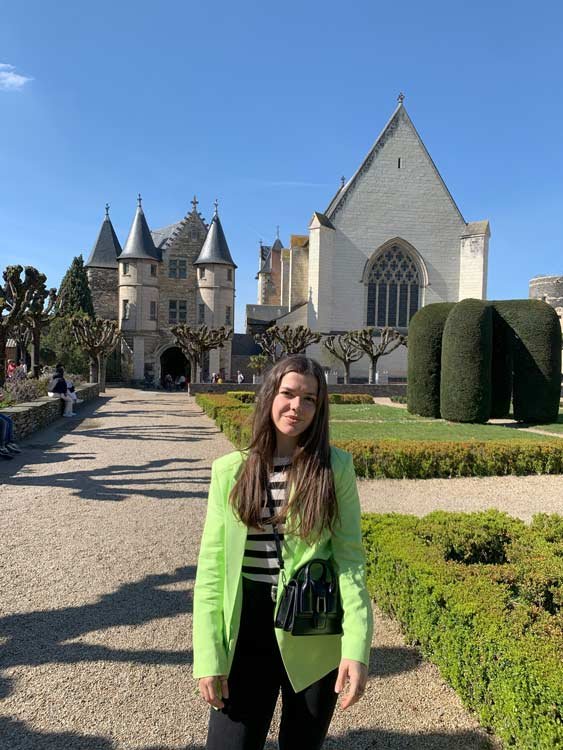
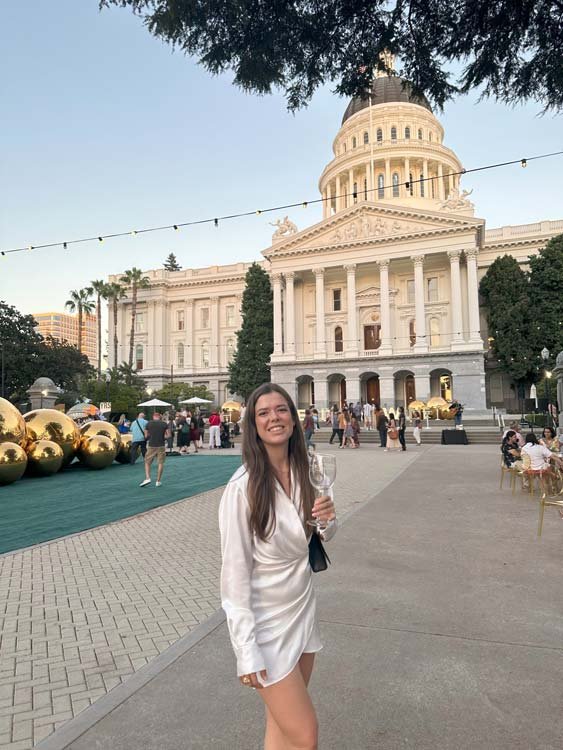
Woman to Woman
There was a remarkable difference when the buyer was a woman. I remember these women I met as extraordinarily talented, hard working with strong character. Often, their presence was more intimidating than that of men, but for completely different reasons. While I was silenced by the men perhaps because of being young or a woman, or probably because of the combination of both, the women seemed to listen attentively and asked questions. They were protective of their time and made sure to make the most of each meeting.
The years following, I continued as a scholar and professional in wine, from France to Spain and recently, in Lodi, California. I continued to encounter women who have inspired me. Like the women in my early years, they possessed a firm character, charisma, talent beyond the ordinary and knowledge. They never cease to amaze me and my admiration of them continues to grow. Listening to them, even outside professional environments, simply sharing thoughts over a glass of wine about their vision of life or their values, is a gift and a constant learning experience. They are the mirror I would like to look into in the future.
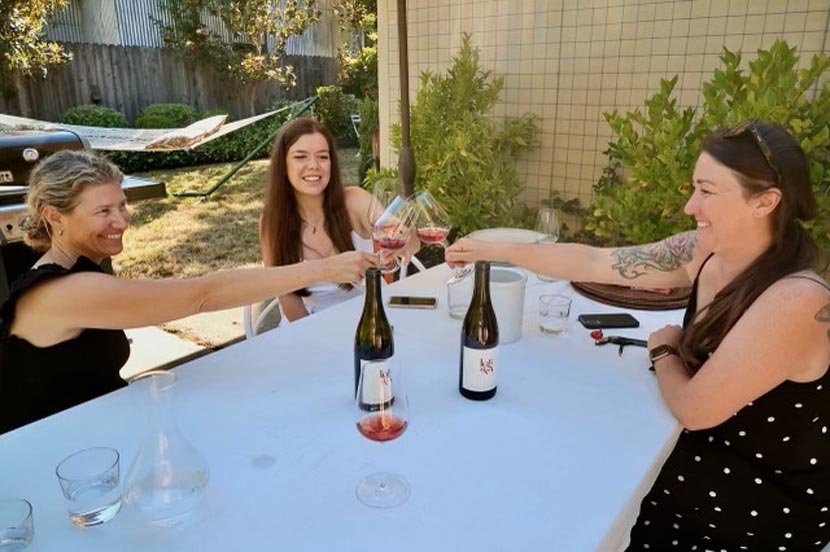
Lodi: A Beacon of Change
Lodi’s emergence as a wine region mirrors the rise of women within the industry. Lodi, over the last two decades has faced misconceptions as a ‘bulk wine region.’ Lodi has been overlooked, sometimes silenced, and compared to its better known neighboring regions. No one needs to look on a map to find Napa or Sonoma, but where is Lodi? Like the region itself, women have overcome misconceptions and garnered recognition in the face of formidable odds. Their journey parallels the broader challenges of the wine industry, marked by bias and elitism. It’s easy to feel out of place as a woman in an industry where we were not the norm. Know that wherever you see a woman proudly standing amongst men, she’s fought doubly hard to be there.
This is the time to study and drink the wines of Lodi to taste the revolution.
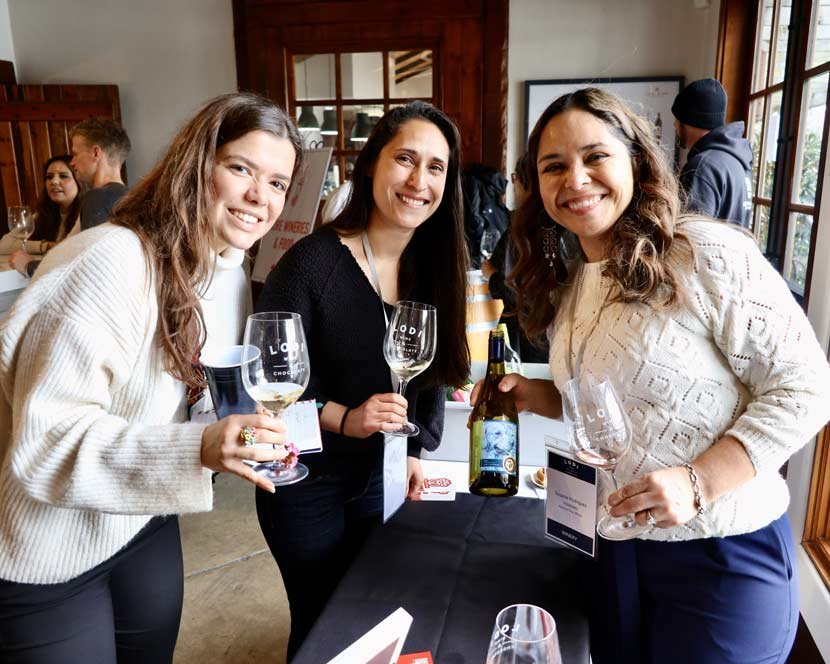
Photo credits: Randy Caparoso
Winemaker’s Brunch at the Lodi Winegrape Commission & Visitors Center grounds. With winemakers Christina Lopez (Acquiesce Vineyards) and Susana Rodríguez (Rescue Dog Wines)
Women’s Resilience: A Testament to Strength
When I began brainstorming for this article, my first instinct was to list the names of all the women who have shaped my journey in Lodi’s wine scene. The blank page soon filled with columns and columns of names. I soon realized that dedicating even just a few lines to each of the women in wine on my list would resemble more of an encyclopedia than an article.
But that doesn’t make this any less of a tribute to them. I want to cheer for those women who aren’t afraid to get their hands dirty in the vineyard, to sweat, to get stained in the cellar, to challenge tradition and custom. To those women used to being counted as the least, if not the only ones, at conferences, dinners, tastings, events; surrounded by men with their caps, measuring their beards, and resting their hands on their prominent stomachs. To those women that never need to raise their voice out loud, because their successes speak for themselves. For those women whose firm gaze reflects their strength, their determination. To all those women, more and more, who are part of the change. Who open doors and tear down walls.
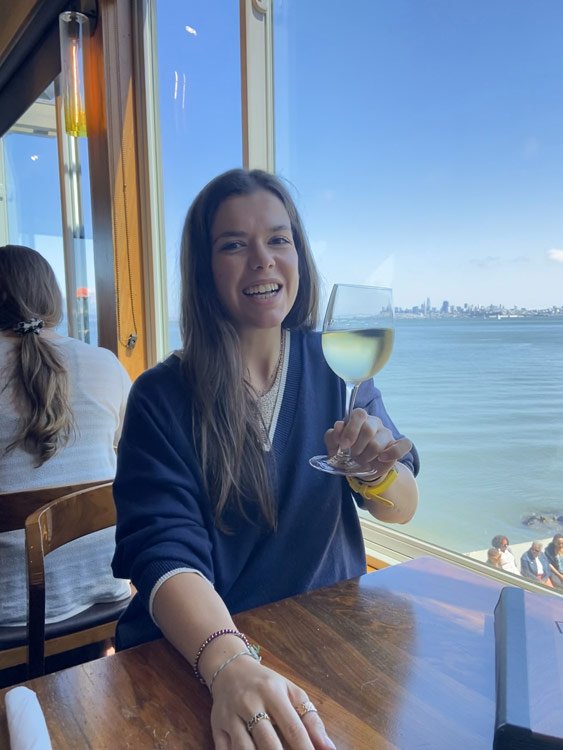
(Wine) God is a Woman
In a landscape where “Wine God” is often depicted as male, women are reclaiming their rightful place at the forefront of the industry. And if anything characterizes us women, it’s that shared camaraderie, sisterhood. That’s our strength, that’s where the secret of success (or survival) of the entire industry lies. And, in a way, this article is also proof of the web we’re weaving. That will make us unstoppable.
If I was able to fill a page with all those names, it’s because their effort has already paved a path for the future. But I want to think that part of the future is happening now. Yes, in Lodi, and locally in so many places, from the most remote vineyard in Virginia to the coolest funkiest natural wine bar on the East Coast. The hardest part is already done. They have heard us. (Wine) God is a woman.
Acknowledgments:
Gratitude to Regine for letting me add my voice through these lines, and all the remarkable women who have contributed to this narrative, underscoring the importance of collective solidarity and support in driving positive change.

Leave A Comment
You must be logged in to post a comment.